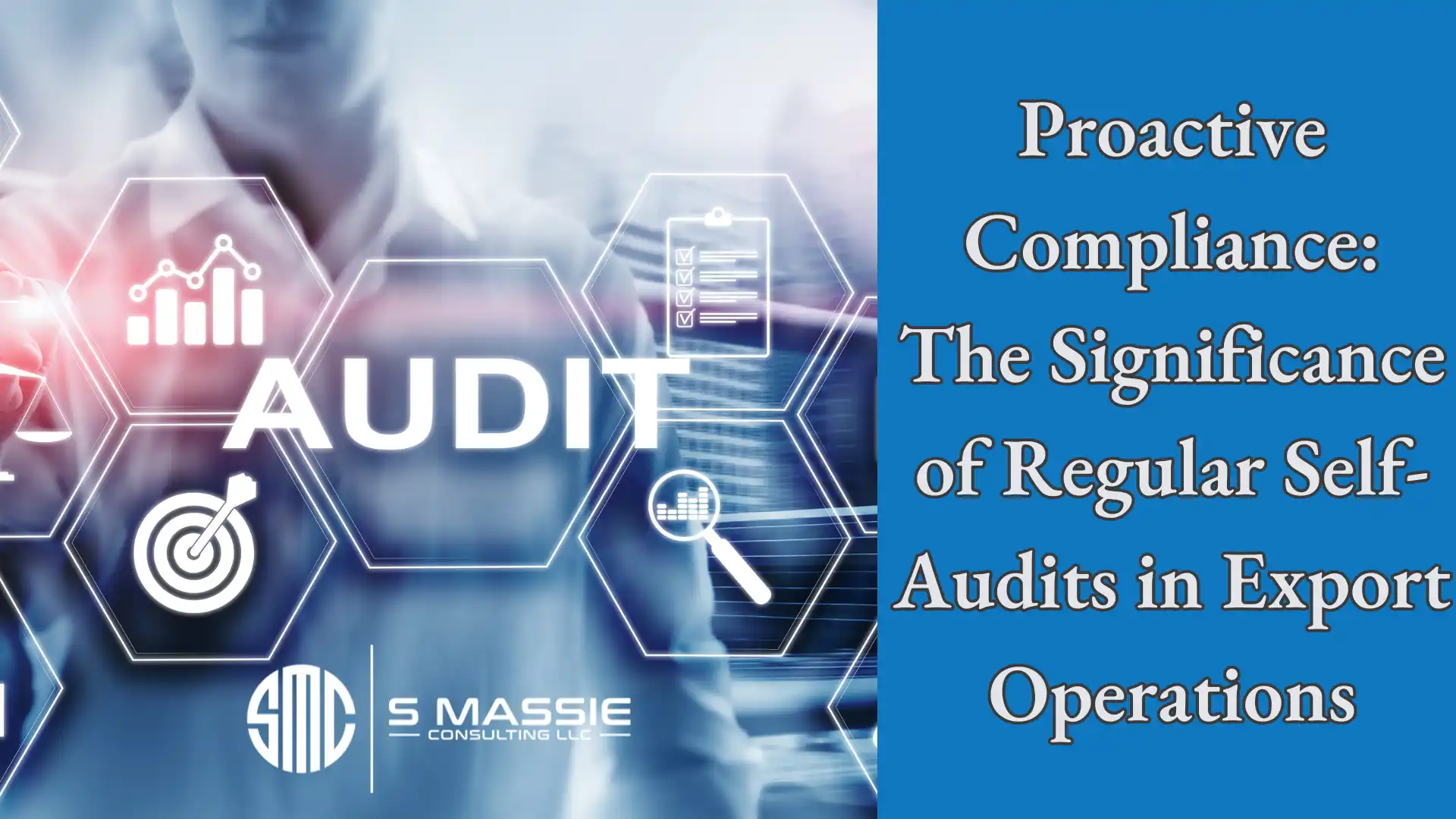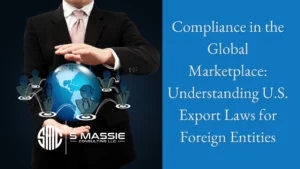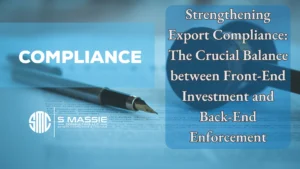Proactive Compliance: The Significance of Regular Self-Audits in Export Operations
In the realm of international trade, adherence to export regulations isn’t just a legal requirement; it’s a critical component of maintaining trust with stakeholders and ensuring the sustainability of your business. As your organization navigates the complexities of global commerce, one essential practice to consider is the implementation of regular self-audits within your export compliance program and processes.

At S Massie Consulting, we recognize the significance of robust export compliance measures and the role that regular self-audits play in achieving and maintaining compliance excellence. Here’s why conducting self-audits on a regular basis is crucial for your organization:
- Comprehensive Risk Assessment: Regular self-audits enable your organization to conduct a thorough assessment of its export compliance processes, identifying potential gaps, weaknesses, or areas of non-compliance. By proactively identifying and addressing these issues, you can mitigate the risk of compliance violations and associated penalties.
- Continuous Improvement: Self-audits facilitate a culture of continuous improvement within your export compliance program. Through regular review and evaluation of processes, policies, and procedures, your organization can identify opportunities for enhancement and refinement, ultimately strengthening your compliance framework.
- Preventative Measures: By conducting self-audits on a regular basis, your organization can identify and address potential compliance issues before they escalate. This proactive approach allows for the timely implementation of corrective actions and preventative measures, reducing the likelihood of non-compliance incidents.
- Unit-Level Self-Audits: In addition to full organizational self-audits, conducting unit-level self-audits is equally essential. Unit-level self-audits allow for a more granular examination of specific export processes and transactions, enabling timely identification and resolution of compliance issues at their source. This decentralized approach complements the broader organizational self-audit efforts, ensuring comprehensive coverage and effectiveness in maintaining export compliance across all operational units.
- Operational Efficiency: A well-executed self-audit process can streamline your organization’s export compliance operations, leading to enhanced efficiency and effectiveness. By identifying inefficiencies and redundancies, you can optimize your compliance efforts, saving valuable time and resources in the process.
- Demonstration of Due Diligence: Regular self-audits demonstrate your organization’s commitment to due diligence and regulatory compliance. This not only enhances your reputation as a responsible global trade partner but also instills confidence among stakeholders, including customers, suppliers, and regulatory authorities.
Conclusion
Regular self-audits are a cornerstone of effective export compliance management. By proactively assessing your organization’s compliance processes and implementing necessary improvements, you can mitigate risks, enhance operational efficiency, and demonstrate your commitment to regulatory compliance.
For guidance on implementing a self-audit program for the EAR or ITAR, feel free to reach out to our team at S Massie Consulting. We’re here to support your journey towards compliance excellence.
About Sarah Massie
Sarah Massie is a globally recognized export compliance expert, trusted consultant, and national speaker with almost 20 years of international business experience. As the President of S Massie Consulting LLC, she specializes in export consulting, creating written ITAR and export compliance programs, and training companies to navigate complicated laws and regulations for U.S. exports. She has organized promotions in the aerospace, technology and medical industries at international trade shows and Governor-led trade missions on five continents. After spending a year in Panama, Sarah graduated Summa Cum Laude from Boise State University with a B.B.A. in International Business with emphases in Spanish and Entrepreneurship. She is also the author of an upcoming memoir titled “The Two Lives I’ve Lived.”


